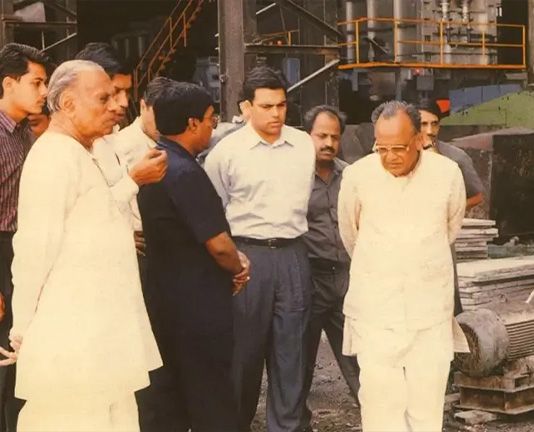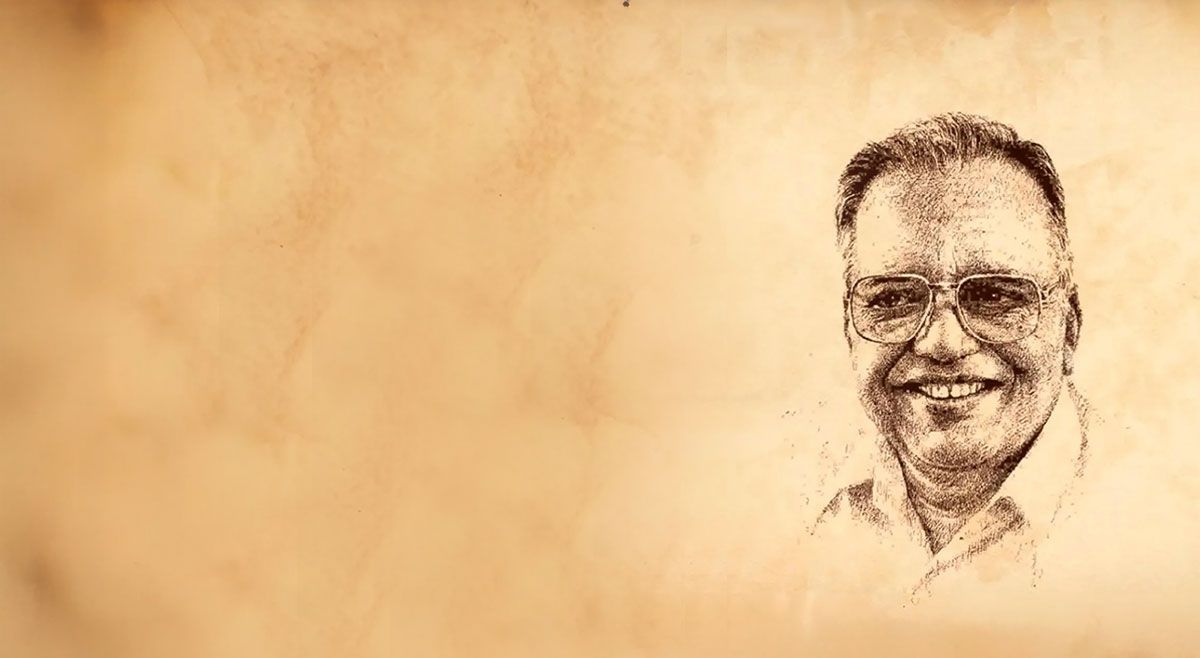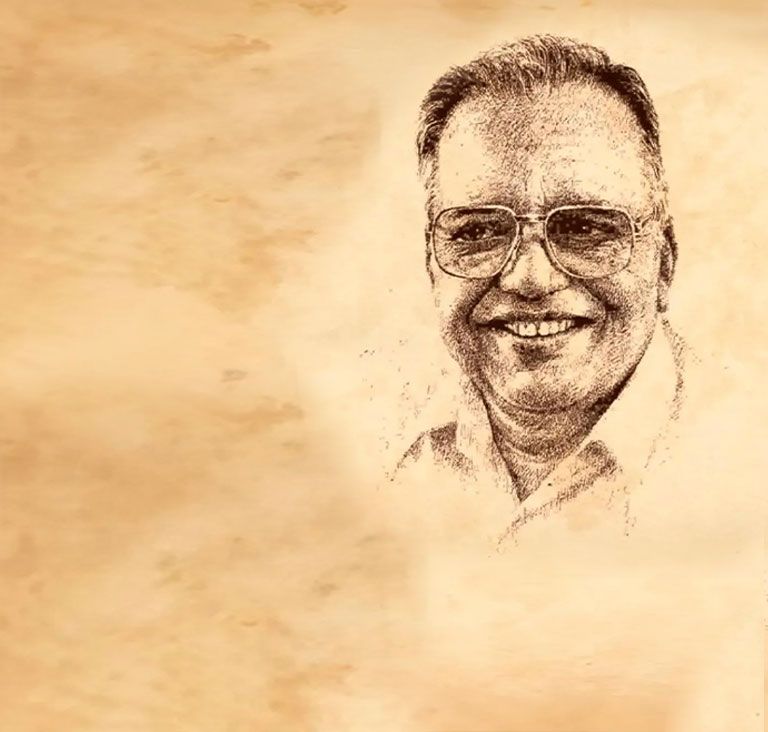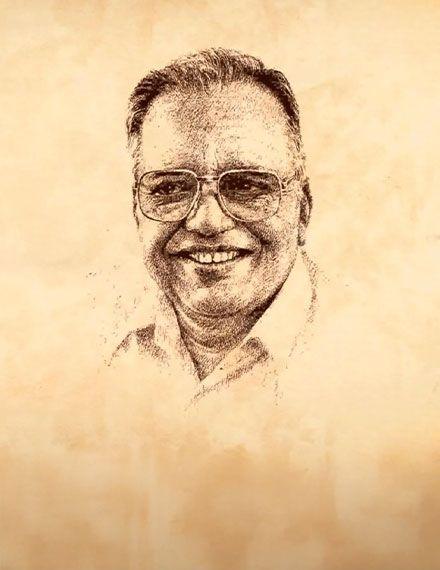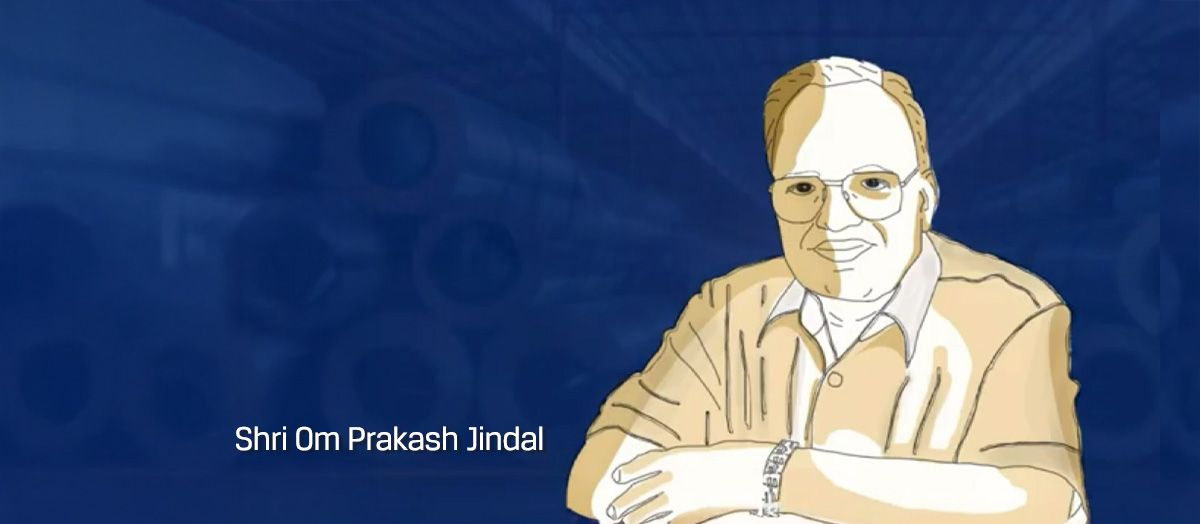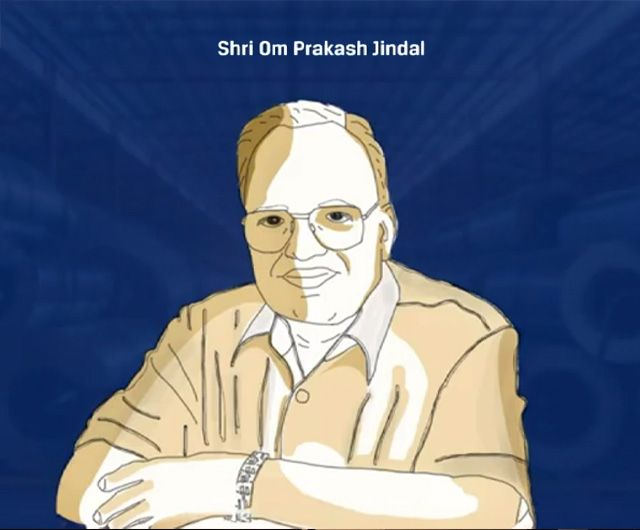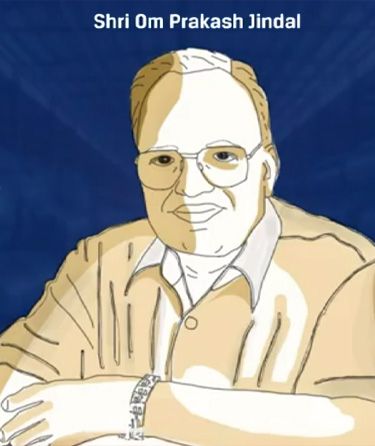Shri O.P. Jindal, affectionately known as Bauji, was a visionary leader whose impact spanned industry, politics, and philanthropy. With bold entrepreneurial spirit and a deep commitment to nation-building, he reshaped India’s industrial landscape and championed progress for the underprivileged. As Haryana’s Power Minister and the first industrialist elected to the Lok Sabha, he linked national growth with inclusive upliftment.
Renowned for his keen technical mind and often said to be someone who could diagnose problems in machines by sound alone, O.P. Jindal revolutionised industries, he revolutionised industries through innovation and service. His story, captured in The Man Who Talked to Machines, remains a powerful inspiration, driving India’s growth and inspiring future generations.
A Legacy of Vision and Impact
Humble Beginnings, Big Dreams
Born in 1930 in Nalwa, Haryana, Om Prakash Jindal was a man of vision, grit, and relentless drive. Passionate about machines and driven by the dream of a self-reliant India, he rose from humble farming roots to launch a pipe bend and sockets unit in Howrah in 1952 with ₹40,000, half borrowed, at just 22. OP led production hands-on, while his brothers managed finance, administration, and marketing.
Though the Calcutta unit prospered, his heart lay in Nalwa. In 1957, he established a plant in Hisar, and by 1960, Jindal Industries began manufacturing pipes, moving beyond buckets, with OP designing every component except the imported welding machine.
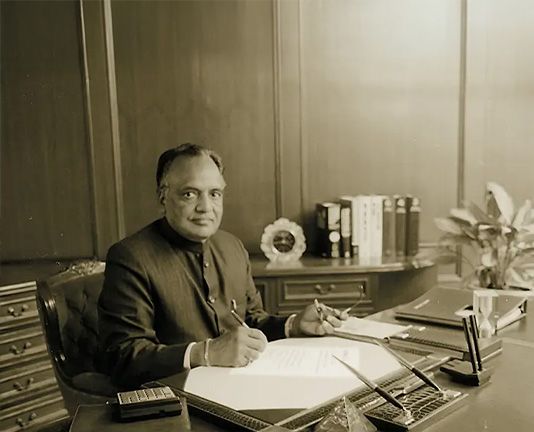
From Ambition to Achievement
When Jindal Industries ventured into pipe manufacturing in 1964, Shri. OP Jindal’s father, Net Ram, examined the first sample and predicted his son’s name would stand alongside India’s industrial giants. As production soared, raw material shortages loomed due to import restrictions and restrictive policies. OP tackled the crisis head-on and responded with innovation, founding Jindal Strips in the 1970s to produce hot-rolled steel through electric arc furnaces.
In 1975, he expanded into stainless steel, and within two years, Jindal Stainless redefined the industry with cutting-edge technology and solutions that triumphed over all adversities.

Redefining India’s Future through Self-Reliance
Shri O.P. Jindal’s dream of self-reliance began in Calcutta, where British-made pipes fueled his ambition------building a self-reliant India. As plants expanded, Jindal Ferro Alloys and Saw Pipes became fully operational in 1987, a backward integration initiative that resolved supply shortages, while indigenous technology reduced import dependence and saved foreign exchange.
Often described as a “sixth standard pass engineer extraordinaire” with boundless innovation, he reshaped industries, created jobs, and uplifted communities. His relentless pursuit of self-reliance earned him the Bengal Chamber’s Lifetime Achievement Award in 2004.
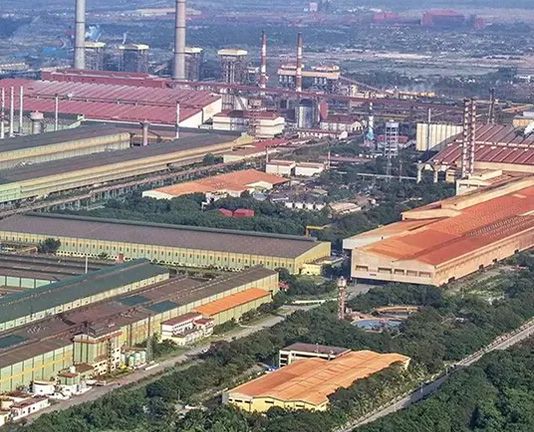
Crafting a Legacy of Timeless Impact
Om Prakash Jindal’s legacy defines JSW, as grounded in trust and integrity. Beyond business success, his philanthropic vision transformed lives across India. He founded universities, and technical schools, and pioneered rural development through skill centers, hospitals, and infrastructure projects. His commitment to women’s empowerment, health, and nutrition further elevated communities. The JSW Foundation ensures its timeless impact, improving lives and building a sustainable future for generations.
